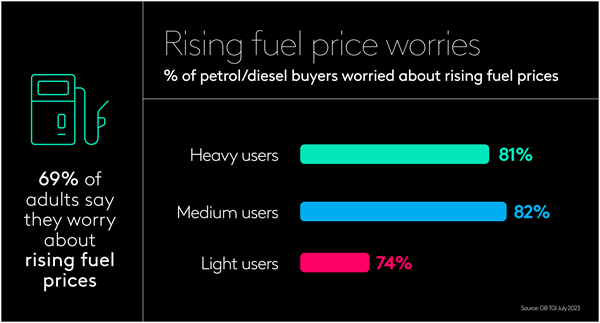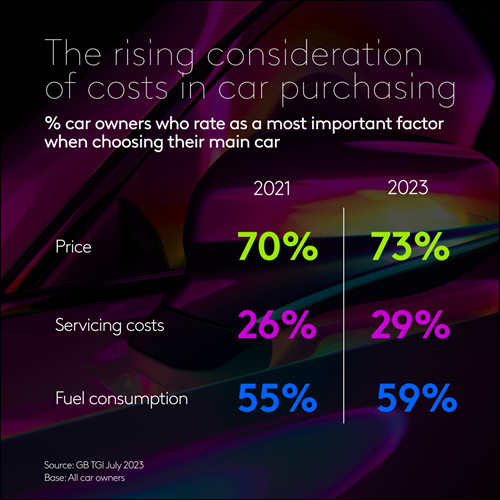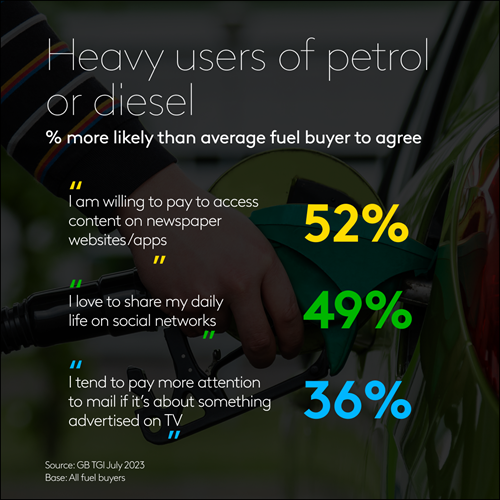We explore the impact of fuel costs on motorists today and how the heaviest users can be engaged

Following reports of petrol stations and retailers not passing on the fuel duty price cut to consumers, petrol retailers are now working with the competition watchdog to establish a scheme enabling motorists to compare live fuel prices online.
The mounting cost of petrol and diesel has been one of the most prominent features of the cost of living crisis. But how do consumers feel today about fuel prices and what are the trends in petrol and diesel consumption as we have transitioned from the pandemic into the cost of living crisis?
Latest GB TGI data reveals that 53% of adults (28.3 million people) claim to have bought petrol or diesel in the last 12 months. Of these, 79% (22.3 million) say they are worried about rising fuel prices, with the figure even higher for those who are medium or heavy users of petrol or diesel.

Amongst car owners, fuel consumption ranks third most popular as a key consideration for purchasing a vehicle, beaten only by price and reliability.
Indeed, the proportion of car owners rating fuel consumption as a most important factor has crept up in recent years, from 55% two years ago to today’s figure of 59%. Other financial-driven factors have also seen an increase in recent years.

Today 23% of fuel buyers (6.6 million people) claim to buy 35 or more litres of petrol or diesel each week, a figure that has bounced back over the last two years following a dip during the pandemic as lockdowns kept many people off the roads.
Those who claim to be heavy users of petrol or diesel are considerably more likely than the average fuel buyer to be likely to engage with a range of specific media, including newspaper sites/apps, social media and direct mail.
